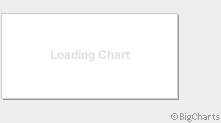MOSCOW/KIEV (Reuters) - Russia and Ukraine face another day of sparring over gas supplies on Wednesday and two European Union states launched fresh diplomacy to end a dispute that has left their economies without Russian gas for one week.
Russia began pumping gas meant for Europe via Ukraine on Tuesday, but the EU said little or no gas was flowing to countries suffering urgent energy shortages.
Russia accused Ukraine of shutting off gas to Europe, but Kiev said there was not enough pressure in the pipeline system.
The crisis has disrupted supplies to some 18 countries at the height of winter, shutting down dozens of factories in southeast Europe.
Two of the worst hit EU states, Bulgaria and Slovakia, sent their prime ministers to Moscow and Kiev in a fresh effort to get gas supplies restored.
Slovakian Prime Minister Robert Fico, who was in Kiev on Wednesday for talks with Ukrainian Prime Minister Yulia Tymoshenko, said the country had 11 days of gas reserves left.
"After 12 days, we will be obliged to resort to measures never seen in our history. May I simply ask how long this will go on?" he told Tymoshenko.
Fico is due in Moscow later to meet Russian Prime Minister Vladimir Putin alongside Bulgarian Prime Minister Sergei Stanishev and Moldovan Prime Minister Zinaida Greceanii.
Stanishev is under pressure to secure supplies for his country of 7.6 million people as limited domestic reserves are dwindling and anger among Bulgarians is mounting against his Socialist-led government.
Slovakia, which has a population of 5.4 million and gets almost all its gas from Russia, declared a state of emergency on January 6, under which gas deliveries to large clients were reduced. About 1,000 companies were forced to shut or cut production.
A deal brokered by the EU, which gets a quarter of its gas from Russia, had been intended to get supplies moving on Tuesday, with international monitors in place to ensure that Ukraine was not siphoning off any gas, as Moscow has alleged.
Russian state-controlled gas monopoly Gazprom declared force majeure on gas exports to Europe on Tuesday, meaning circumstances beyond its control prevented it from meeting its obligations to clients.
Gazprom is demanding Kiev hand over $614 million for unpaid gas bills and pay $450 per 1,000 cubic meters of gas in 2009. That is similar to rates paid by EU customers but a big rise on last year's price of $179.5.
Analysts in Kiev say Ukraine, saddled with debt and hard hit by the global slowdown, cannot afford that price.
POOR RELATIONS
The European Commission said Europe needed the gas urgently and an aide to Commission President Jose Manuel Barroso said on Tuesday that he had expressed disappointment over the low volumes pumped by Russia in a telephone conversation with Putin.
Gazprom's Deputy CEO Alexander Medvedev accused the United States of pulling the strings. "It looks like ... they (Ukraine) are dancing to the music which is being orchestrated not in Kiev but outside the country," he said.
State Department spokesman Sean McCormack rejected the charge as "totally without foundation."
Ukraine's economy -- based on steel and chemical exports -- has been hit hard by the global slowdown and its hryvnia currency has experienced sharp falls.





































